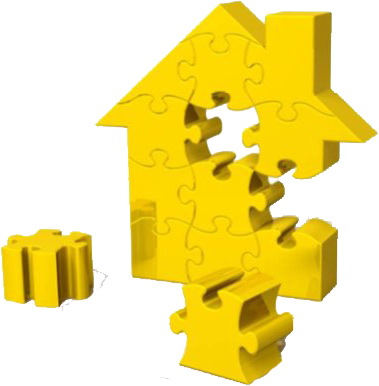The real estate industry is becoming increasingly volatile, with new challenges arising every day. Being a landlord in this highly competitive market is not an easy task. You are required to overcome many challenges in order to survive and grow your business successfully.
One significant challenge gaining more traction than ever is how energy-efficient your property is. As more and more people are becoming conscious of the environment, the demand for a sustainable way of living is constantly on the rise. Consequently, a larger sum of the population are looking for energy-efficient homes.
This is where the importance of an EPC comes to light, as it provides insight into the efficiency of your property. While you may consider it just a regulatory tick in the box before renting your property, it holds more value than that. A low EPC rating can significantly impact your business and make finding tenants a challenge.
To emphasise the importance of EPC ratings, we have listed five ways in which a low EPC rating impacts landlords. These points will highlight how energy efficiency and effective property management go hand in hand.
Let’s check them out!
1. Legal Implications and Compliance Challenges
Low EPC ratings can result in serious legal problems for you as a landlord. These ratings show how energy-efficient your property is, acting as a standard for following regulations.
In the UK, properties with a low rating of E or below are not allowed to be rented. This regulation aims to reduce carbon emissions and promote energy efficiency.
Besides this, if your property fails to meet the specified EPC standards, you might face fines and legal issues, which highlights the importance of keeping up to date with changing energy efficiency rules. Ensuring your property is energy efficient is not only about avoiding fines but also a crucial part of managing your property responsibly.
2. Decreased Property Value and Market Appeal
A property’s value and attractiveness can significantly decrease with a low Energy Performance Certificate rating, posing a substantial hurdle for you. In today’s eco-conscious market, a high EPC rating is an important selling point.
A high EPC-rated property indicates improved energy efficiency and lower utility expenses, making them highly appealing. On the other hand, properties with low ratings are often considered less desirable.
This reduced appeal may result in long vacancy periods and a smaller number of interested parties. Additionally, potential buyers and investors often consider such properties a financial burden due to the high upgrade cost involved. Due to all of these factors, the property’s market value takes a direct hit.
3. Significantly Higher Maintenance Cost
If you own a property that has a low EPC rating, you might struggle with notably higher maintenance expenses. A low EPC rating commonly indicates older or less energy-efficient properties, which demand more frequent and extensive maintenance efforts.
Such properties often have outdated systems, such as inefficient heating or inadequate insulation, resulting in repeated repairs and necessary upgrades. Maintaining these systems requires a significantly higher cost compared to more energy-efficient counterparts due to increased chances of breakdowns and inefficiencies.
4. Difficulty in Attracting Quality Tenants
Your tenants are the backbone of your business. Attracting responsible and reliable tenants is extremely important for you as a landlord. Good tenants make sure you receive a steady flow of cash and also maintain the condition of your property. However, if your property has low epc ratings, it can be difficult for you to find tenants.
With the increasing demand for sustainability, many people only consider environmentally friendly homes nowadays, due to their lower monthly expenses.
When you implement measures to make your property more energy efficient and improve its EPC rating, you are making it enticing for eco-conscious individuals. Besides increasing the appeal of your property these improvements will also help you form a better relationship with your tenants.
5. Struggle in Acquiring Insurance
Another disadvantage that you can face as a landlord with a low epc rating is difficulty in acquiring insurance for your property. Bad ratings mean your property is more susceptible to potential issues like increased maintenance problems and structural inefficiencies.
As a result, insurance companies view such properties as high-risk and often refrain from offering coverage or providing it with a higher interest rate. An unsecured property can be put in a tough financial position if an unexpected accident occurs. Therefore, working towards a better EPC rating doesn’t just make the property more efficient but also allows you to find suitable insurance.
Contact Gio Property Solutions for an Accurate EPC Rating
As highlighted by the points mentioned above, a low EPC rating can affect your business adversely. If your property has a low EPC score, it is crucial to make improvements and implement measures to make it more energy-efficient. Once changes have been made, conduct the test again for a more desirable outcome. Are you looking for an accredited EPC service provider? Gio Property Solutions has got you covered!
We have a team of experts who have years of experience and the necessary expertise to carry out accurate Energy Performance Certification (EPC) for your property. From start to finish, we prioritise a hassle-free experience!
With us, you can improve your property’s energy efficiency and ensure that your building is complying with the regulatory codes. We provide accurate results, meaning you can trust we are the right people for the job.
Click here to learn more or contact us to book an appointment today!


